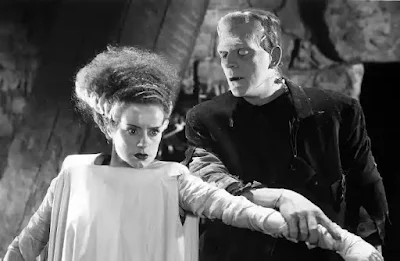In the 1930s, Universal Studios dominated the horror genre by adapting classic literature into chilling cinematic experiences. But amongst these terrifying tales, James Whale's "Frankenstein" movies stand out for their unexpected element: empathy for the monster.
This is particularly evident in "The Bride of Frankenstein," where the creature's yearning for connection and belonging takes center stage.
The film paints a poignant portrait of a monster who is lost and alone in a world that fears and rejects him.
His longing for companionship is palpable, as he seeks friendship from the blind man and attempts to communicate his desires through the simple but heartfelt phrase, "I want friend like me."
However, every attempt at connection is met with fear and violence, culminating in the tragic rejection of his bride.
However, every attempt at connection is met with fear and violence, culminating in the tragic rejection of his bride.
Through this narrative, "The Bride of Frankenstein" transcends the boundaries of the horror genre. It becomes a morality tale, prompting us to question the true nature of monstrosity.
Is it simply a matter of physical appearance, or something more deeply rooted in our fear of the unknown and our inability to accept difference?
By evoking such empathy for the monster, the film challenges our preconceived notions of who the real monsters are.
It ultimately suggests that true monstrosity may lie not in the creature's appearance, but in the hearts of those who reject him based on shallow fear and prejudice.
This profound exploration of empathy and societal judgment continues to resonate with audiences today, making "The Bride of Frankenstein" more than just a classic horror film.
It's a timeless story that invites us to examine our own biases and embrace understanding over fear, reminding us that true beauty and humanity can exist even in the most unexpected forms.

